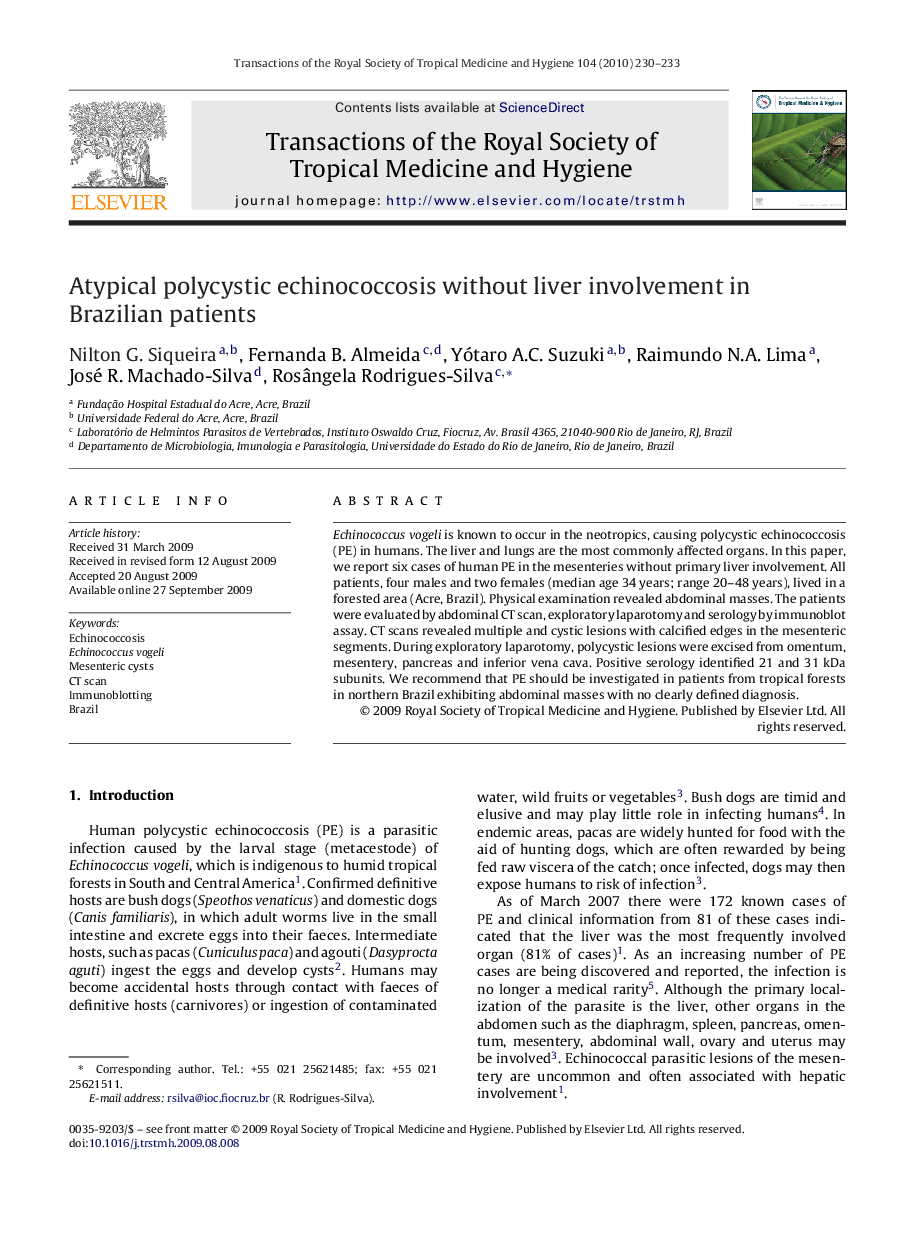| Article ID | Journal | Published Year | Pages | File Type |
|---|---|---|---|---|
| 3420499 | Transactions of the Royal Society of Tropical Medicine and Hygiene | 2010 | 4 Pages |
Abstract
Echinococcus vogeli is known to occur in the neotropics, causing polycystic echinococcosis (PE) in humans. The liver and lungs are the most commonly affected organs. In this paper, we report six cases of human PE in the mesenteries without primary liver involvement. All patients, four males and two females (median age 34 years; range 20-48 years), lived in a forested area (Acre, Brazil). Physical examination revealed abdominal masses. The patients were evaluated by abdominal CT scan, exploratory laparotomy and serology by immunoblot assay. CT scans revealed multiple and cystic lesions with calcified edges in the mesenteric segments. During exploratory laparotomy, polycystic lesions were excised from omentum, mesentery, pancreas and inferior vena cava. Positive serology identified 21 and 31 kDa subunits. We recommend that PE should be investigated in patients from tropical forests in northern Brazil exhibiting abdominal masses with no clearly defined diagnosis.
Related Topics
Life Sciences
Immunology and Microbiology
Applied Microbiology and Biotechnology
Authors
Nilton G. Siqueira, Fernanda B. Almeida, Yótaro A.C. Suzuki, Raimundo N.A. Lima, José R. Machado-Silva, Rosângela Rodrigues-Silva,
